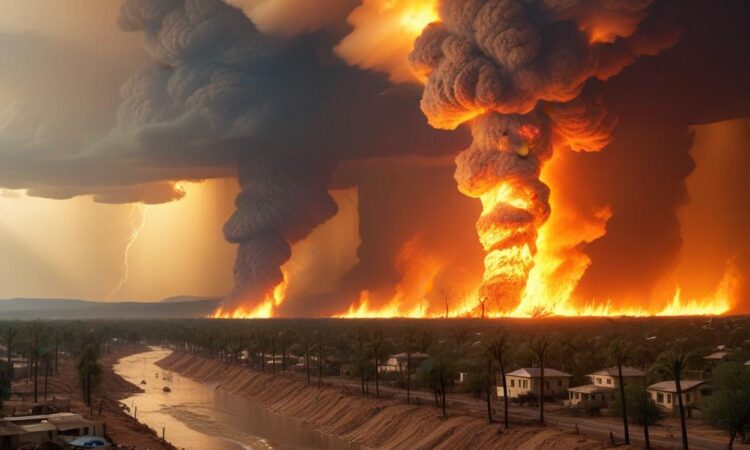Climate Change Fuels Extreme Weather: A New Study Reveals Stark Reality
A groundbreaking study published in the prestigious scientific journal Nature has unveiled alarming evidence of the escalating impact of climate change on our planet. The study, conducted by a team of leading climate scientists, has conclusively demonstrated that human-induced climate change is directly responsible for a dramatic increase in the frequency and intensity of extreme weather events, such as heatwaves, droughts, and floods.
This alarming trend has far-reaching societal implications, threatening to exacerbate existing vulnerabilities and trigger a cascade of negative consequences. As extreme weather events become more commonplace, we can expect to witness a surge in displacement, food shortages, and economic losses, impacting communities and economies worldwide.
The study’s findings are based on a rigorous analysis of historical climate data, coupled with cutting-edge climate models. The researchers meticulously examined weather patterns over the past century, comparing historical records to simulations that account for the influence of greenhouse gas emissions. This comprehensive approach has provided irrefutable evidence of the direct link between climate change and the intensification of extreme weather events.
The study’s authors highlight the urgent need for global action to mitigate climate change and adapt to its inevitable consequences. They emphasize that reducing greenhouse gas emissions is critical to preventing further escalation of extreme weather events and safeguarding the future of our planet. Furthermore, they advocate for the implementation of robust adaptation strategies to minimize the impacts of extreme weather events on vulnerable communities.
The study’s findings have sent shockwaves through the scientific community and beyond, sparking renewed calls for decisive action to address climate change. World leaders, policymakers, and individuals alike are being urged to recognize the urgency of this crisis and to commit to ambitious goals for reducing greenhouse gas emissions.
The evidence is clear: climate change is not a distant threat, but a present reality shaping our world. As extreme weather events become more frequent and severe, the consequences for human society and the natural environment will be profound. It is imperative that we heed the warnings of science and act decisively to address this global challenge before it’s too late.
The study’s authors believe that their findings provide a stark wake-up call for humanity. They argue that it is no longer sufficient to simply acknowledge the existence of climate change; we must now take concrete steps to address its root causes and mitigate its devastating impacts.
The study’s findings have been met with widespread support and condemnation from various sectors. Environmental organizations have applauded the research, citing it as further evidence of the urgent need for action. However, some industries, particularly those heavily reliant on fossil fuels, have attempted to downplay the significance of the study’s findings.
Despite these dissenting voices, the scientific consensus on climate change is unwavering. The overwhelming majority of climate scientists agree that human activity is the primary driver of climate change, and that we are facing an unprecedented crisis that demands immediate and decisive action.
The study’s authors have stressed that the future of our planet hinges on our ability to address climate change. They argue that inaction is not an option, and that we must act collectively to safeguard our future and the well-being of generations to come.
The study has provided a crucial new piece of evidence in the fight against climate change. It serves as a stark reminder of the urgency of the situation and the critical need for global action. The time for debate is over; it is time for action.
The study’s findings have far-reaching implications for policymaking, economic development, and individual behavior. It is essential that we work together to build a sustainable future that is resilient to the challenges posed by climate change.
As we move forward, we must be guided by the principles of science, collaboration, and foresight. By embracing these principles, we can overcome the challenges of climate change and create a brighter future for all.

